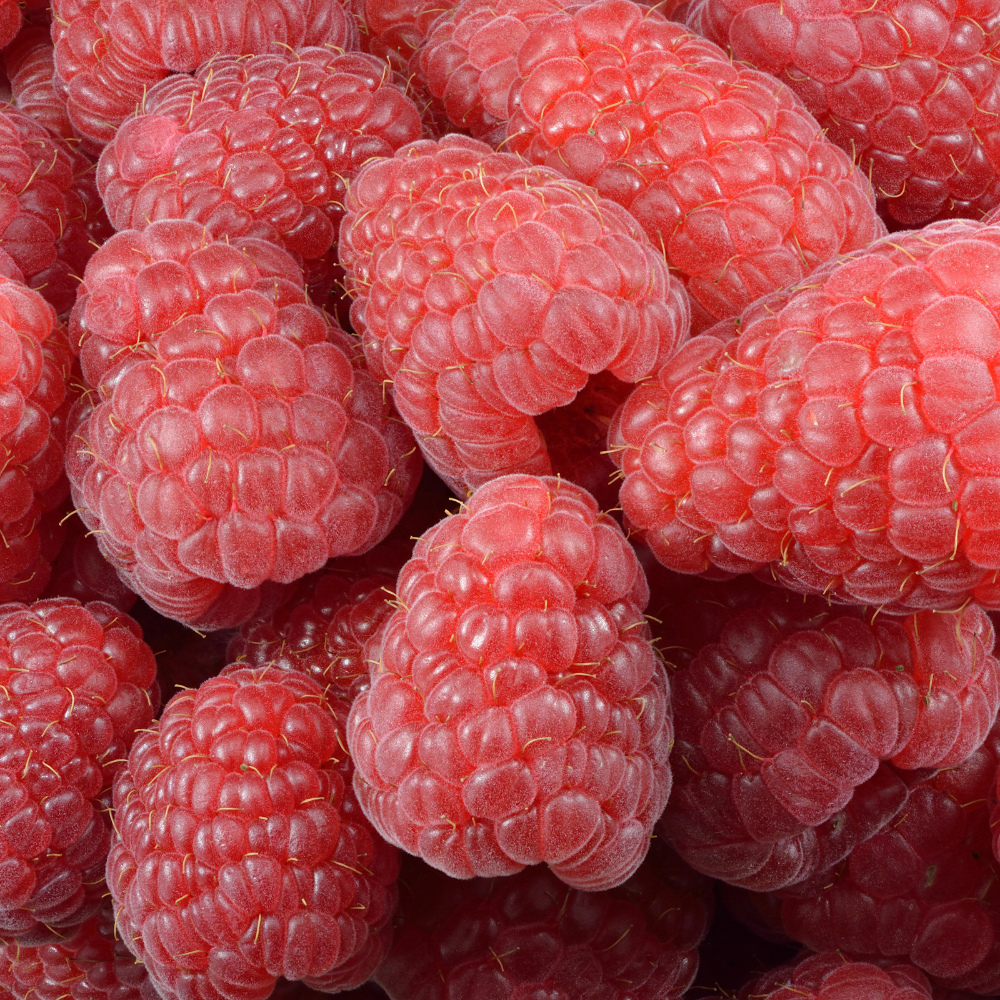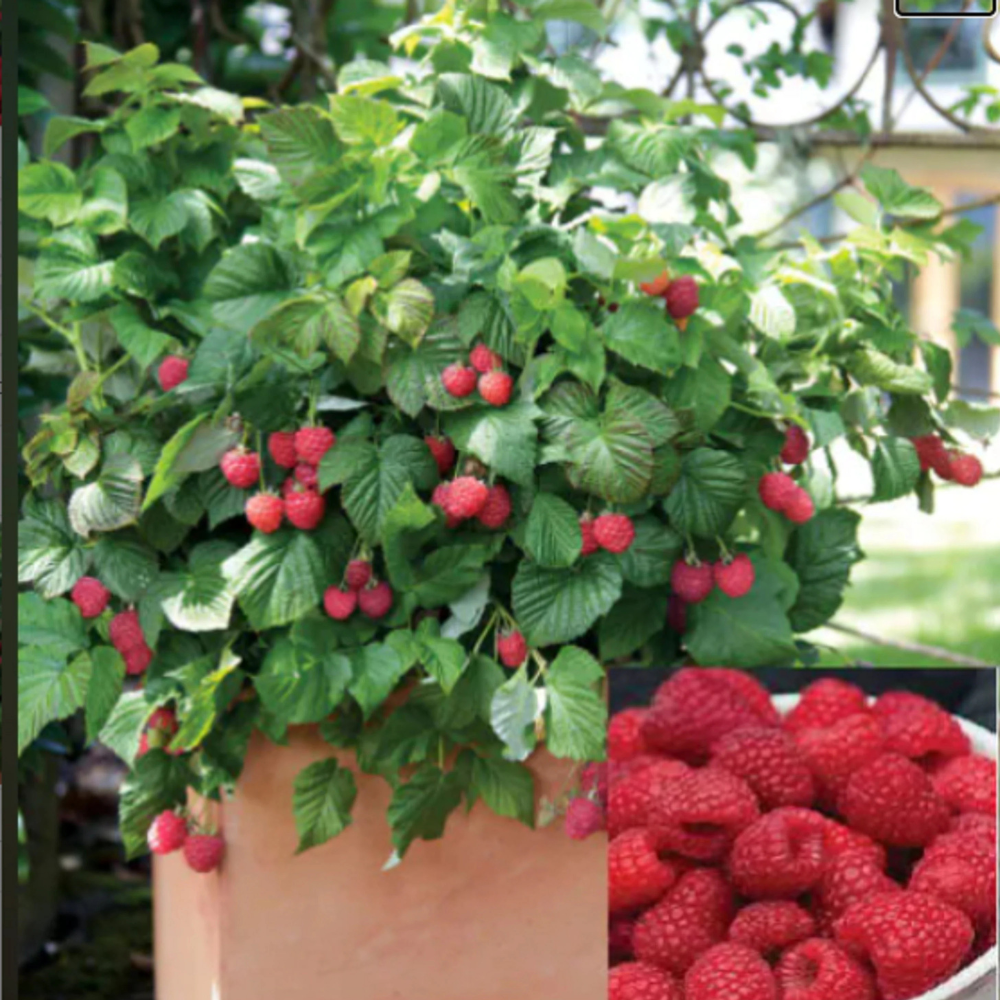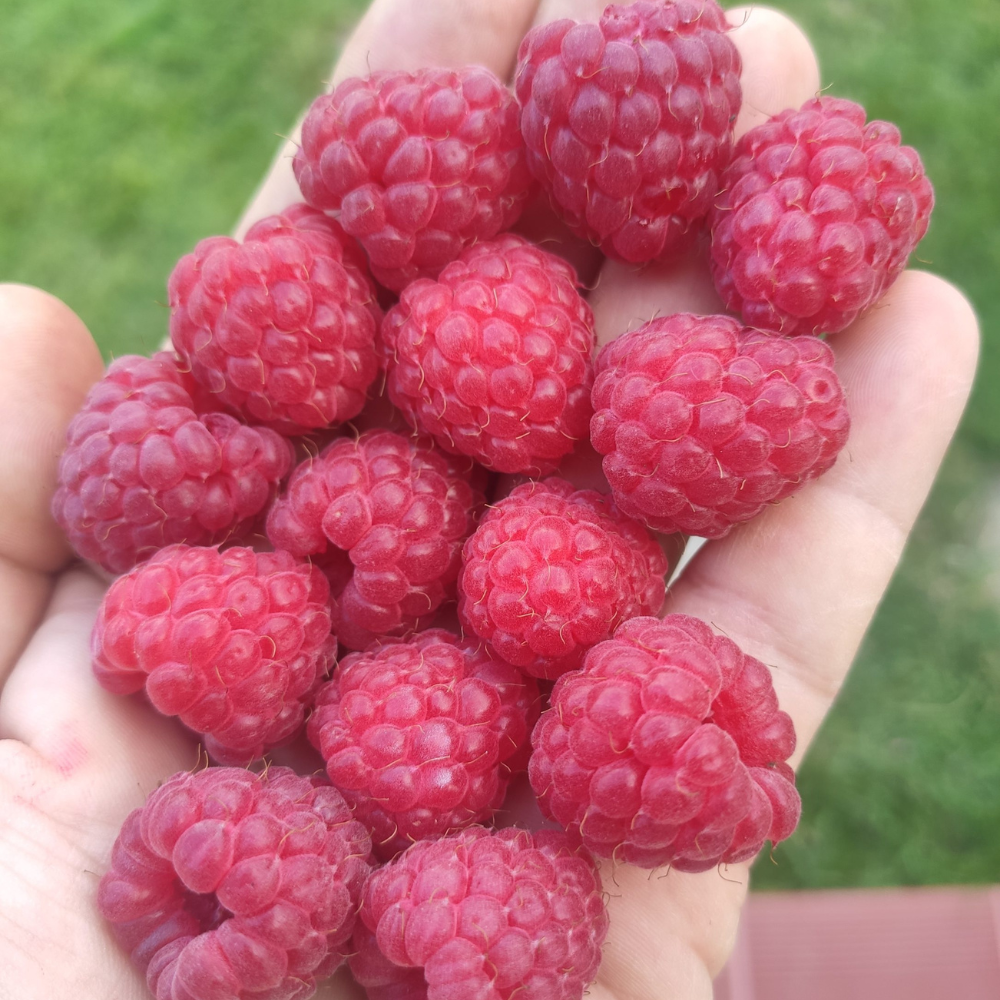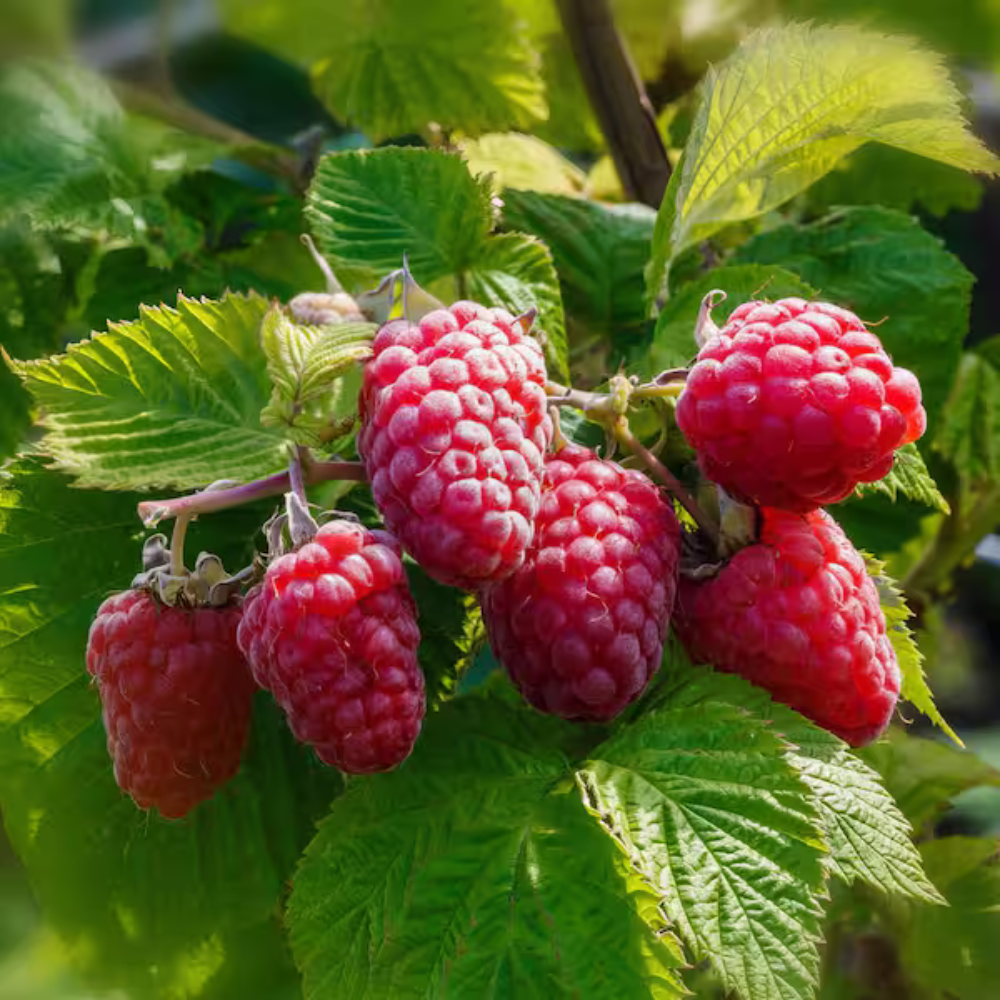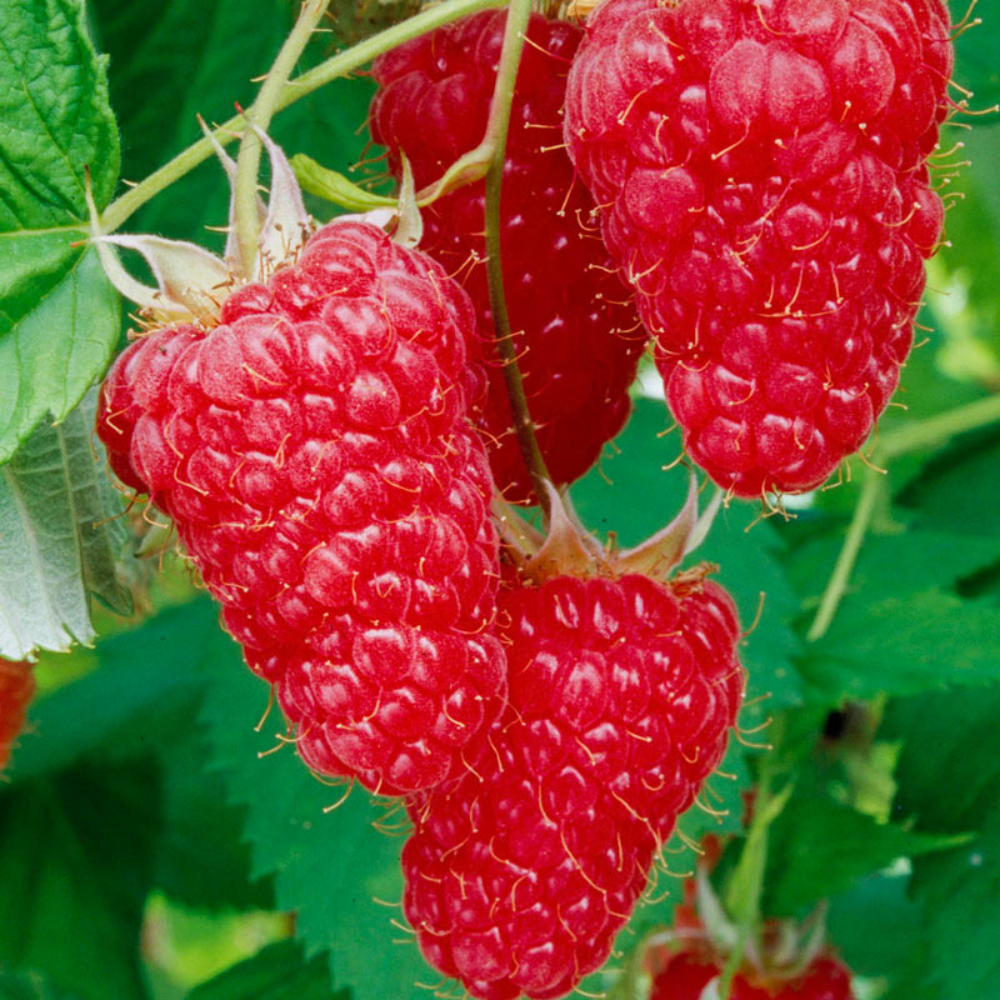Maroseika Raspberry Seeds (Rubus idaeus)
Description:
The Maroseika raspberry (Rubus idaeus) is a renowned variety celebrated for its large, sweet, and aromatic berries. Developed in Russia, this cultivar is notable for its high yield, thornless canes, and adaptability to various climates. Its robust growth and exceptional fruit quality make it a favorite among gardeners and commercial growers alike.
Key Features:
• Plant Characteristics:
• A vigorous, upright, and spreading deciduous shrub reaching heights of 1.5 to 1.8 meters.
• Thornless canes, facilitating easier harvesting and maintenance.
• Produces numerous lateral shoots, enhancing fruiting potential.
• Fruit Features:
• Large, conical berries weighing between 4 to 12 grams.
• Bright red color with a glossy appearance.
• Sweet flavor with a subtle tartness, accompanied by a pleasant aroma.
• Firm texture, suitable for fresh consumption and processing.
• Hardiness:
• Exhibits moderate winter hardiness, tolerating temperatures down to -15°C.
• In colder regions, winter protection is recommended to safeguard canes.
Cultivation Instructions:
• Climate Requirements:
• Thrives in temperate climates with warm summers and mild winters.
• Requires full sun exposure for optimal fruit development.
• Soil Preference:
• Prefers well-drained, fertile loamy soils with a pH between 5.5 and 6.5.
• Incorporate organic matter to enhance soil fertility and drainage.
• Planting Instructions:
• Stratify seeds by placing them in moist sand or peat and refrigerating at 4°C for 8–12 weeks to break dormancy.
• Sow stratified seeds in spring, 1–2 cm deep, in a seed-starting mix.
• Maintain consistent moisture and a temperature of 20–25°C for germination, which may take 2–4 weeks.
• Transplant seedlings to the garden when they reach 10–15 cm in height, spacing them 60–90 cm apart.
• Watering:
• Provide regular watering to keep the soil evenly moist, especially during flowering and fruiting periods.
• Avoid waterlogging, as it can lead to root diseases.
• Pruning:
• Prune annually in late winter or early spring to remove dead or weak canes.
• Thin out canes to allow for better air circulation and light penetration.
Uses and Benefits:
• Culinary:
• Ideal for fresh consumption, jams, jellies, desserts, and freezing.
• High sugar content makes it suitable for winemaking and liqueurs.
• Gardening:
• Thornless canes make it user-friendly for home gardens and pick-your-own operations.
• Attractive foliage and fruit add aesthetic value to landscapes.
• Nutritional Value:
• Rich in vitamins C and K, dietary fiber, and antioxidants, promoting overall health.
Historical Note:
The Maroseika variety was developed in the 1970s by Russian breeder Professor V.V. Kichina at the Moscow Institute of Horticulture. It was one of the first large-fruited, thornless raspberry cultivars introduced in Russia, combining the desirable traits of high yield, excellent fruit quality, and ease of harvest.
Shipping Information:
Deodar Seeds ensures that all seeds are carefully selected and packaged to maintain their freshness and viability. Seeds are shipped within India and internationally, with delivery typically within 1–2 weeks.
From Deodar Seeds Company.
Description:
The Maroseika raspberry (Rubus idaeus) is a renowned variety celebrated for its large, sweet, and aromatic berries. Developed in Russia, this cultivar is notable for its high yield, thornless canes, and adaptability to various climates. Its robust growth and exceptional fruit quality make it a favorite among gardeners and commercial growers alike.
Key Features:
• Plant Characteristics:
• A vigorous, upright, and spreading deciduous shrub reaching heights of 1.5 to 1.8 meters.
• Thornless canes, facilitating easier harvesting and maintenance.
• Produces numerous lateral shoots, enhancing fruiting potential.
• Fruit Features:
• Large, conical berries weighing between 4 to 12 grams.
• Bright red color with a glossy appearance.
• Sweet flavor with a subtle tartness, accompanied by a pleasant aroma.
• Firm texture, suitable for fresh consumption and processing.
• Hardiness:
• Exhibits moderate winter hardiness, tolerating temperatures down to -15°C.
• In colder regions, winter protection is recommended to safeguard canes.
Cultivation Instructions:
• Climate Requirements:
• Thrives in temperate climates with warm summers and mild winters.
• Requires full sun exposure for optimal fruit development.
• Soil Preference:
• Prefers well-drained, fertile loamy soils with a pH between 5.5 and 6.5.
• Incorporate organic matter to enhance soil fertility and drainage.
• Planting Instructions:
• Stratify seeds by placing them in moist sand or peat and refrigerating at 4°C for 8–12 weeks to break dormancy.
• Sow stratified seeds in spring, 1–2 cm deep, in a seed-starting mix.
• Maintain consistent moisture and a temperature of 20–25°C for germination, which may take 2–4 weeks.
• Transplant seedlings to the garden when they reach 10–15 cm in height, spacing them 60–90 cm apart.
• Watering:
• Provide regular watering to keep the soil evenly moist, especially during flowering and fruiting periods.
• Avoid waterlogging, as it can lead to root diseases.
• Pruning:
• Prune annually in late winter or early spring to remove dead or weak canes.
• Thin out canes to allow for better air circulation and light penetration.
Uses and Benefits:
• Culinary:
• Ideal for fresh consumption, jams, jellies, desserts, and freezing.
• High sugar content makes it suitable for winemaking and liqueurs.
• Gardening:
• Thornless canes make it user-friendly for home gardens and pick-your-own operations.
• Attractive foliage and fruit add aesthetic value to landscapes.
• Nutritional Value:
• Rich in vitamins C and K, dietary fiber, and antioxidants, promoting overall health.
Historical Note:
The Maroseika variety was developed in the 1970s by Russian breeder Professor V.V. Kichina at the Moscow Institute of Horticulture. It was one of the first large-fruited, thornless raspberry cultivars introduced in Russia, combining the desirable traits of high yield, excellent fruit quality, and ease of harvest.
Shipping Information:
Deodar Seeds ensures that all seeds are carefully selected and packaged to maintain their freshness and viability. Seeds are shipped within India and internationally, with delivery typically within 1–2 weeks.
From Deodar Seeds Company.
Giant Raspberry Maroseika , Rubus Idaeus seeds - 100
- Brand: Deodar Seeds
- Product Code: FR35.1
- Availability: In Stock
₹445.00

